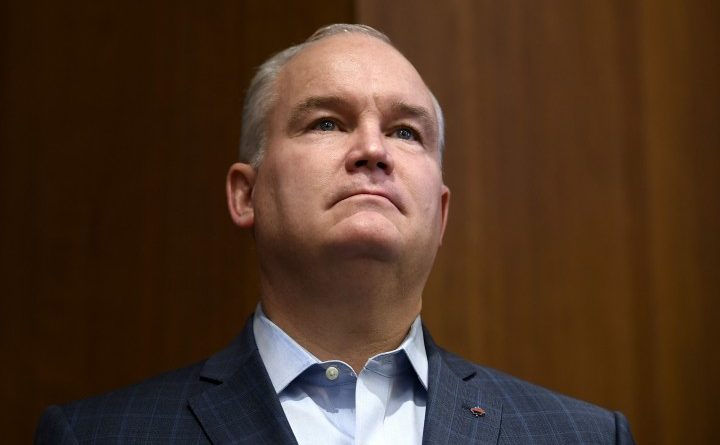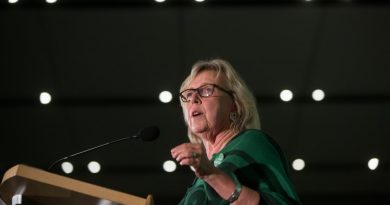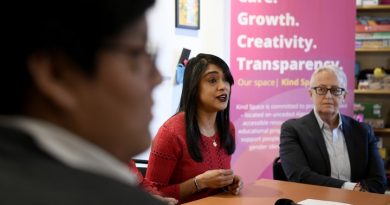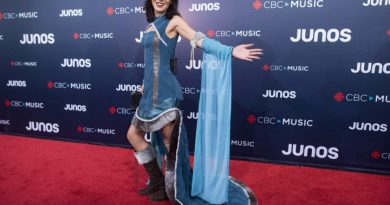Conservative leadership campaign trail adds one more: MP Erin O’Toole
OTTAWA — Ontario MP Erin O’Toole officially launched his leadership campaign Monday, promising to be a uniting force for his party as it looks for new footing following last fall’s federal election loss.
O’Toole, 47, met privately with party members in Alberta and chose to deliver his opening pitch to the public with a video posted to his website.
The video shows him walking with Parliament Hill looming behind him as he promises to be someone who not only stands up for auto workers, forestry workers and soldiers, but also for the urban and suburban voters the Conservatives need to attract in the next election.
“We need strong leadership to unite our party, take the hyphen out of being a Conservative, and ensure we grow our movement to win,” O’Toole said in the video.
“We need to show more urban and suburban Canadians that their values of liberty, family and equality are at the core of our party. I’m running to unite Conservatives on the path to victory.”
Conservatives are in the midst of debating the party’s position on a number of social issues such as LGBTQ rights and abortion, after outgoing leader Andrew Scheer’s clumsy positions on them contributed to the party’s failure in the October federal election. Several Conservatives have said they think those issues were among the reasons the party failed to resonate with urban and suburban voters in Ontario and Quebec.
Scheer initially intended to stay on as leader despite the election results but in mid-December suddenly changed his mind, announcing he would step aside when a new leader is chosen. That will happen at a convention in Toronto on June 27.
With his leadership bid now underway, O’Toole was replaced as the party’s foreign affairs critic in caucus. Fellow Ontario MP Marilyn Gladu, who announced her leadership bid earlier this month, is also being replaced as the health critic.
Sitting MPs seeking the leadership are not allowed to hold critic positions during the campaign.
Deputy leader Leona Alleslev will take on the foreign affairs role, while Alberta MP Matt Jeneroux takes on health. Both are critical roles as Parliament resumed for the first significant session since the election, with the new North American trade deal, Canada’s relationship with China and the emergence of a new virus out of China all key issues the House of Commons will deal with in the weeks to come.
Also in the race is former justice minister Peter MacKay, who left politics in 2015 and has worked as a private lawyer and political commentator since 2016. MacKay signalled his intention to run in early January but made it official over the weekend at an event in Nova Scotia.
MacKay has pulled ahead of the pack with endorsements from sitting MPs, with at least 15 throwing their support his way so far.
That includes at least three, including B.C. MP Ed Fast, Manitoba MP James Bezan and Ontario MP Colin Carrie, who backed O’Toole for the leadership in 2017. O’Toole finished third in that race, his supporters effectively putting Scheer over the top to clinch the victory over Maxime Bernier.
While the 2017 contest saw more than a dozen people on the ballot, the 2020 version is thus far shaping up to have a much smaller list of contenders. In addition to O’Toole, MacKay and Gladu, Ontario MP Derek Sloan, former political aides Aron Seal and Richard Decarie, 2019 Ontario candidate Bobby Singh and Alberta businessman Rick Peterson have declared an intention to run.
Last week three potential heavyweights decided not to run, including former Quebec premier Jean Charest, former interim Conservative leader Rona Ambrose, and current MP Pierre Poilievre, who was supposed to launch his campaign Sunday but quit at the last minute.
In order to officially register as a candidate, contenders must submit an application, a $25,000 instalment on the $300,000 entry fee and the first 1,000 of the 3,000 required signatures, all by Feb. 27.
O’Toole’s campaign said Monday he has already met both requirements.
O’Toole stresses in his video that he is not a career politician, and that he spent 10 years in the private sector and 12 years in the military before running for office in a 2012 by-election. He represents the riding of Durham near Toronto.
He became Veterans Affairs minister in 2015, and was credited with easing major tensions between the Conservative government of the day and the veterans community by drawing in part on his own background serving in the Royal Canadian Air Force.
His leadership platform for the 2017 vote included a marquee promise to increase the basic personal income tax exemption for Canadians in their first three to five years out of school, as well as a pledge to increase defence spending to meet the NATO target of 2 per cent of GDP and a new trade and security partnership between Canada, the U.K., Australia and New Zealand.
By: Stephanie Levitz and Mia Rabson
© The Canadian Press, 2020. All rights reserved. This material may not be published, broadcast, rewritten or redistributed.




